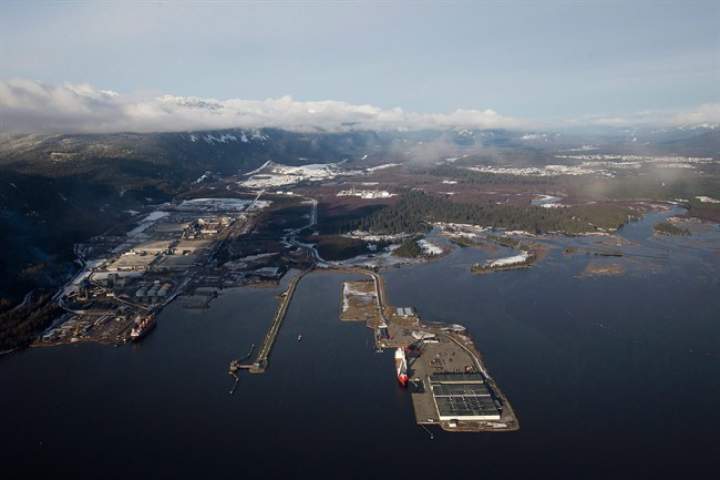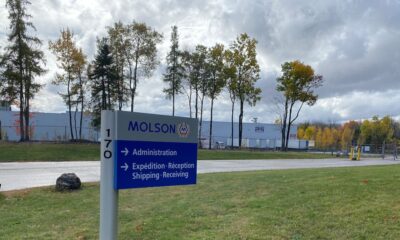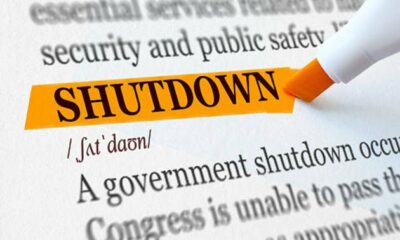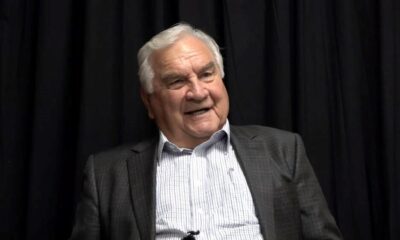Top Stories
New Oil Pipeline for B.C. North Coast Could Be Fast-Tracked

UPDATE: A potential new oil pipeline to British Columbia’s North Coast is gaining momentum, just under a decade after the Northern Gateway project was halted. Newly appointed Prime Minister Mark Carney has vowed to expedite “nation-building” industrial initiatives, possibly including a Northwest Coast Oil Pipeline, according to a comprehensive list of 32 major projects obtained by The Globe and Mail.
This proposal, currently in the “concept” phase, aims to connect Canadian heavy crude to Asian markets, potentially revitalizing the economy amidst ongoing trade tensions with the United States. The list emphasizes projects in Western Canada, with significant undertakings like LNG Canada Phase 2 and plans for dredging Burrard Inlet to accommodate larger oil tankers.
However, the prospect of a new pipeline has sparked fierce opposition from environmental groups and Indigenous leaders in British Columbia, who stress the need for compliance with Indigenous sovereignty and environmental protections. B.C. Assembly of First Nations Regional Chief Terry Teegee articulated grave concerns, stating, “Any process attempting to bring a crude oil pipeline through Indigenous territory must comply with constitutional requirements to consult with First Nations and adhere to the United Nations Declaration on Indigenous Peoples (UNDRIP).”
The urgency of this situation is underscored by the lack of a current proponent for the pipeline, a fact noted by the B.C. NDP government, which has strongly opposed the expansion of the Trans Mountain pipeline. Energy Minister Adrian Dix emphasized, “Our message to the federal government is there is an absolute desire in challenging times for people to invest in B.C. We are investing in the future in B.C., especially in electrification.”
Despite the resistance, there is potential political support for the project from the provincial Opposition. BC Conservative finance critic Peter Milobar stated, “We need to have those conversations and get moving with another pipeline in northern B.C. if that is what looks like to be our best economic opportunity.”
As the situation develops, it remains uncertain when the federal government will finalize its list of prioritized projects or if the controversial oil pipeline will be included. The stakes are high, with economic implications that could resonate across Canada.
Stay tuned for updates as this story unfolds and impacts the economic landscape of Canada. The dialogue surrounding Indigenous rights, environmental considerations, and energy infrastructure is set to intensify in the coming weeks.
-

 World3 months ago
World3 months agoScientists Unearth Ancient Antarctic Ice to Unlock Climate Secrets
-

 Entertainment3 months ago
Entertainment3 months agoTrump and McCormick to Announce $70 Billion Energy Investments
-

 Lifestyle3 months ago
Lifestyle3 months agoTransLink Launches Food Truck Program to Boost Revenue in Vancouver
-

 Science3 months ago
Science3 months agoFour Astronauts Return to Earth After International Space Station Mission
-

 Technology2 months ago
Technology2 months agoApple Notes Enhances Functionality with Markdown Support in macOS 26
-

 Top Stories1 week ago
Top Stories1 week agoUrgent Update: Fatal Crash on Highway 99 Claims Life of Pitt Meadows Man
-

 Sports3 months ago
Sports3 months agoSearch Underway for Missing Hunter Amid Hokkaido Bear Emergency
-

 Politics2 months ago
Politics2 months agoUkrainian Tennis Star Elina Svitolina Faces Death Threats Online
-

 Technology3 months ago
Technology3 months agoFrosthaven Launches Early Access on July 31, 2025
-

 Politics3 months ago
Politics3 months agoCarney Engages First Nations Leaders at Development Law Summit
-

 Entertainment3 months ago
Entertainment3 months agoCalgary Theatre Troupe Revives Magic at Winnipeg Fringe Festival
-

 Politics1 week ago
Politics1 week agoShutdown Reflects Democratic Struggles Amid Economic Concerns



















